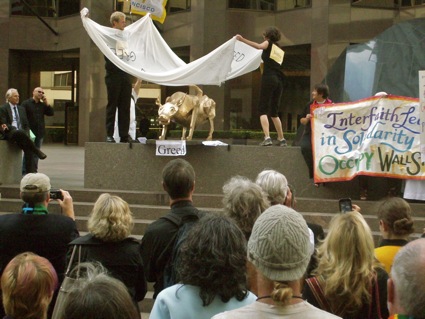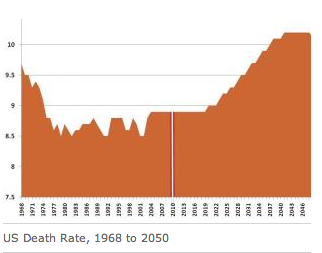Tomorrow, clergy can participate in the “General Strike and Day of Action in Support of Occupy Oakland” which is planned for tomorrow. Below is the relevant information, which I’m passing along from Rev. Jeremy Nickels, a Unitarian Universalist minister in Fremont, California. Here’s Jeremy’s note, slightly edited:
1. There will be a tent called the “Sacred Space Tent” that will be the clearinghouse and meeting place for clergy-related information and events. The tent will be interfaith, and non-faith welcoming. It will have a very high flag or other identifying markings. It will be staffed from 8 a.m. to 10 p.m. by a clergyperson of some faith tradition. If you are interested in helping staff this group, show up early to sign up for a time slot.
2. All clergy should gather at the “Sacred Space Tent” a half hour before the three march times (9 a.m., 12 p.m. and 5 PM) so that we can all march together and multiply the effect of our presence. Those meet-up times at the tent are: 8:30 a.m.; 11:30 a.m.; 4:30 p.m. These are very important meet-up times and should be spread as widely as possible through all of your networks.
3. There will be trainings going on all day Tuesday, November 1, for anyone (clergyperson, layperson, etc.) who wishes to learn more about non-violence and how to embody the principles of Gandhi and King in the actions that we will be participating in on Wednesday.
4. Finally, we ask that you not only come on Wednesday, November 2, but that you bring as many people with you as you can, spread this information through all your networks and contacts!



